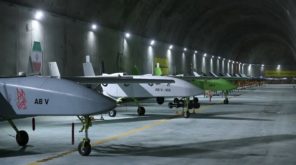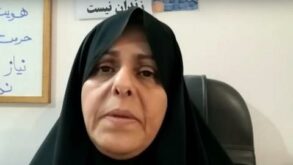Radiofarda – Saudi Arabia has called on the world community to confront Iran’s radicalism and Tehran’s violation of its nuclear obligations.
Saudi media have quoted Abdullah bin Khaled bin Sultan Al Saud, the country’s new permanent representative at the United Nations in Vienna as having said at the International Atomic Energy Agency’s (IAEA) Board of Governors’ meeting that the world should work on a comprehensive international accord about Iran’s nuclear program.
These reports coincide with a strong statement by U.S. Secretary of Treasury Steve Mnuchin who said on Thursday that the United States is still pursuing its campaign of “maximum pressure” against Iran, signaling that hardliner John Bolton’s departure from the post of U.S. National Security Adviser does not change U.S. policy vis-à-vis Tehran, as the policy of maximum pressure “is working,” he said.
The IAEA meeting is tasked with negotiations about the verification of the peacefulness of Iran’s nuclear program based on UN Resolution 2231.
The Saudi representative also called at the meeting for a nuclear-free Middle East as a guaranty for the security of the world community./**/ /**/ /**/ SEE ALSO:Iran Says ‘Rapidly Approaching’ Pull-Out From Nuclear Deal By Boosting Enrichment
Bin Sultan said a new comprehensive accord must be accomplished so that Iran’s nuclear program and its military sites could be constantly monitored and controlled to ensure prompt international sanctions against Iran within the shortest possible time if Iran violates the terms of the accord.
He charged that after signing the 2015 nuclear deal with the West, also called the Joint Comprehensive Plan of Action (JCPOA), Iran started destructive measures that have made its neighboring countries insecure endangering the region’s security.
According to bin Khaled, Iran’s behavior during the past 40 years has been violent and aggressive and that the latest IAEA report shows that Iran has violated the JCPOA.
The UN nuclear watchdog, IAEA, confirmed on Monday, September 9 that Iran has reduced its commitments to the JCPOA in three phases and is installing advanced centrifuges which will double its uranium enrichment capacity.
Following the U.S. pull-out from the nuclear deal in 2018, the Islamic Republic of Iran has said that it is not able to benefit from the deal’s economic benefits and is reducing its commitments under the deal.
Saudi Arabia has been always critical of Iran’s nuclear program. In May 2018 Saudi officials said that If Iran finds access to nuclear weapons, Saudi Arabia will also produce its own atomic bomb./**/ /**/ /**/ SEE ALSO:Saudi Crown Prince Says Will Develop Nuclear Bomb If Iran Does-CBS TV
Meanwhile, Saudi Energy Minister Abdulaziz Bin Salman said on Monday that Saudi Arabia is planning to enrich uranium in the future to provide fuel for its nuclear power plant. As its first steps, Saudi Arabia has previously said that it is planning to construct two nuclear reactors.
Last year, Saudi Arabia opened its first project to build a nuclear reactor for research purposes. Before that, Saudi officials had said that Riyadh was planning to extract Uranium from its mines.
Saudi Arabia is the world’s biggest oil exporter but says it is planning to create a variety in its energy sources.
Riyadh is planning to build 16 nuclear reactors within the next 25 years with an investment estimated by the World Nuclear Energy Association to be more than $80 billion. Russian, U.S., South Korean, Chinese and French companies are said to have entered negotiations with Saudi Arabia to help it build its nuclear reactors.
Nuclear reactors need 5% enriched Uranium for their fuel but increasing the enrichment degree to 90 percent could ultimately produce weapons-grade uranium.
According to Reuters, a uranium enrichment program can complicate Saudi Arabia’s negotiations with U.S. companies toward developing nuclear reactors for Riyadh.
However, according to U.S. deputy energy secretary Dan Brouillette U.S. companies are interested in partnership with Saudi Arabia in building its nuclear plants on the condition that Riyadh undertakes not to make a nuclear bomb.
 Shabtabnews In this dark night, I have lost my way – Arise from a corner, oh you the star of guidance.
Shabtabnews In this dark night, I have lost my way – Arise from a corner, oh you the star of guidance.


